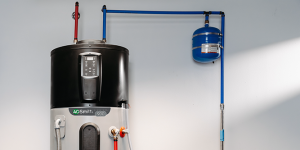It’s easy to miss the entrance to manufactured home communities if you don’t live there. Tucked away from view, these enclaves, sometimes called trailer parks, offer housing for very low-income folks, with monthly costs averaging $564, half the $1,046 for apartments, according to City Lab.
There are more than 13,000 of these homes in Thurston County, about 11% of our housing stock, according to Thurston Regional Planning Council data. Nationwide, an estimated 17.7 million people live in manufactured homes. That’s a lot of folks, of whom 70% are very low-income senior citizens. And many of these homes are at risk.
The vulnerability of manufactured housing stems from the fact that many residents may own their actual dwelling, but they must pay “land rent” to the park’s owner. If these land rents spike upwards or the park is sold, residents must either relocate their manufactured home, try to sell it in place or simply leave it behind.
Unfortunately, moving these homes is difficult, especially if the dwelling doesn’t meet the standards of other nearby parks. While there’s no clear data on manufactured housing conditions, many of these homes are in deteriorated shape because banks won’t offer home improvement loans because they are considered motor vehicles, not real estate that could sustain the lender’s lien. The vast majority of public housing rehabilitation programs won’t offer home repair assistance for similar reasons.
This lack of conventional and public funding echoes the red-lining practices that historically deprived inner-city residents from mortgage and home improvement funding. As a result, mobile home residents are left to fund minor repairs out of pocket, ignore major repairs and hope they don’t ever have to move.
In early July, residents of the Western Plaza manufactured home park on Trosper Road in Tumwater held a town hall to express concerns to their legislators. Their park was sold to an out-of-state investor that immediately raised the land rents by an average of $100 per month. One elderly resident tearfully described her fears of becoming homeless. Another spoke of how she had used her retirement income to buy her “forever” home in this manufactured home park and now fears she’ll end up living with her children.
The legislators listened hard and shared their best efforts to slow rent increases, but everyone there realized much more is needed.
Town Hall organizer Kyle Taylor Lucas noted that the new owner had used federal loan funds to acquire the park. As detailed in a December 2021 National Public Radio story, the two government-backed funders known euphemistically as Fannie Mae and Freddie Mac are often used in these transactions. Created in 1938 as part of the New Deal, “Fannie Mae was first chartered by the U.S. government to help ensure a reliable and affordable supply of mortgage funds throughout the country.” Essentially, funding created to help average people buy affordable homes is now being used to price out the very low-income residents of the most affordable housing in our nation.
A March 2021 New Yorker magazine article by Sheelah Kolhatkar examines the threat to manufactured housing communities, with a tagline that says it all: “The financial industry’s pursuit of profits from mobile-home communities is undermining one of the country’s largest sources of affordable housing.”
Kolhatkar notes that many investors look at mobile parks as ripe for redevelopment, an easy “scrape off-rebuild.” Historically, most mobile home parks were owned by local people who often lived near their residents and maintained a more neighborly regard for their cost of living. Now, these parks are rapidly being acquired by investment groups with no such proximity or regard for existing residents.
Do we care when our lowest-income neighbors come up against out-of-state investors, especially when financed by federal programs originally intended to help lower-income homebuyers? In the biblical battle between David and Goliath, an underdog’s well-aimed rock defeats an overbearing giant, inspiring people everywhere to fight injustice.
In lieu of rocks, manufactured home residents need better access to repair funds and safeguards against displacement from either redevelopment or drastic rent increases. This would be a worthy epic battle for our times.
Anna Schlecht is retired from the City of Olympia where she worked on housing and homeless issues for several decades. This column is part of her year-long exploration of housing issues in our region.
Read the full article here














